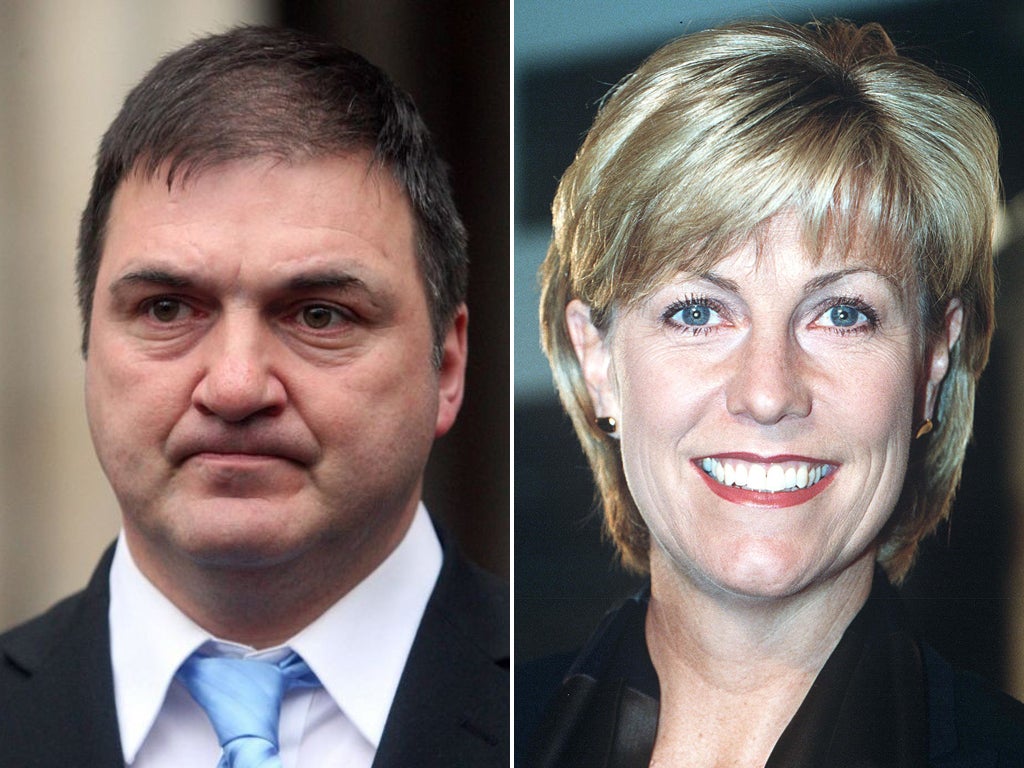Barry George launches compensation test case for being wrongly convicted of Jill Dando's murder and spending eight years in prison

Your support helps us to tell the story
From reproductive rights to climate change to Big Tech, The Independent is on the ground when the story is developing. Whether it's investigating the financials of Elon Musk's pro-Trump PAC or producing our latest documentary, 'The A Word', which shines a light on the American women fighting for reproductive rights, we know how important it is to parse out the facts from the messaging.
At such a critical moment in US history, we need reporters on the ground. Your donation allows us to keep sending journalists to speak to both sides of the story.
The Independent is trusted by Americans across the entire political spectrum. And unlike many other quality news outlets, we choose not to lock Americans out of our reporting and analysis with paywalls. We believe quality journalism should be available to everyone, paid for by those who can afford it.
Your support makes all the difference.The man vilified as Jill Dando’s killer until his conviction was quashed launched a test case for compensation today.
Barry George, 52, who spent eight years in prison after being wrongly convicted of the murder of the TV presenter, is seeking a High Court ruling that could open the way for him to claim an award of up to £500,000.
His case is one of five assembled for senior judges to decide who is now entitled to payments in “miscarriages of justice” cases following a landmark decision by the Supreme Court in May 2011 which ruled that merely quashing a conviction could not be a trigger for compensation.
At the beginning of the three-day hearing, Ian Glen QC, appearing for Mr George, said the decision to deny compensation was “defective and contrary to natural justice” and a breach of the right to a fair trial under Article 6 of the European Convention on Human Rights.
Miss Dando, 37, was shot dead outside her home in Fulham in April 1999 and two years later Mr George was convicted. The significance of evidence relating to a “firearms discharge” particle found in a pocket of one of his coats was called into question following a review and the conviction was quashed by the Court of Appeal in 2007. After the former BBC messenger was found not guilty during a retrial in 2008, the Crown Prosecution Service said he “had the right to be regarded as innocent”.
But yesterday Mr Glen told the court that since the Supreme Court decision his client’s case for compensation had been reconsidered and rejected, adding: “a functionary working for the Ministry of Justice has decided that Barry George is not innocent enough of murder to be compensated”.
Join our commenting forum
Join thought-provoking conversations, follow other Independent readers and see their replies
Comments